From beats to eats: How nightclubs try to survive
- Published

It's brunches and DJ's rather than dancing the night away at the Night Owl in Birmingham
A night out looks very different when compared to a few months ago.
The ten o'clock curfew, the 'rule of six', sound limits on noise and music and the no dancing rule make it all a different experience.
So what are nightclubs doing to adapt and how does a night out feel?
As soon as the lockdown was lifted, Birmingham club The Night Owl decided it would have to try and change the direction of its business.
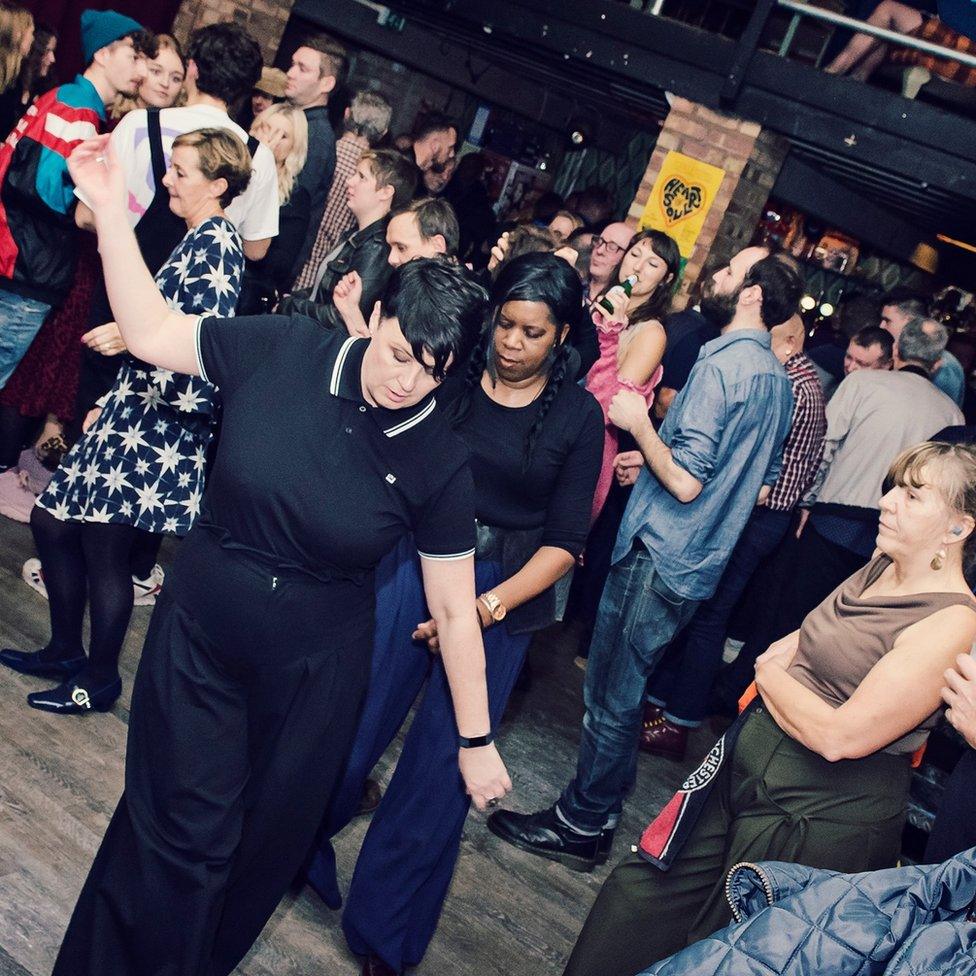
The Night Owl when people could dance. The club hopes it will get back to the dancing scene soon
Gone are the times when club-goers would dance the night away on its sprung-wooden dance floor. Now, socially distanced tables are on the floor, food is served and there is no dancing - at least not much.
The club's managers decided it made sense to expand its daytime attractions. It had previously hosted monthly food and music events but they have now become a weekly thing.
Promoter and DJ Mazzy Snape said: "As well as a reggae cookout we have soul and funk, disco and Prince-themed brunches.
"Our Britpop brunch is proving really popular."
Customers can book a table at the venue from lunchtime up until closing time. Food and drink is ordered by app.
"The whole ethos of the club before was so people could dance - so at first we had to keep reminding them they couldn't," she said.
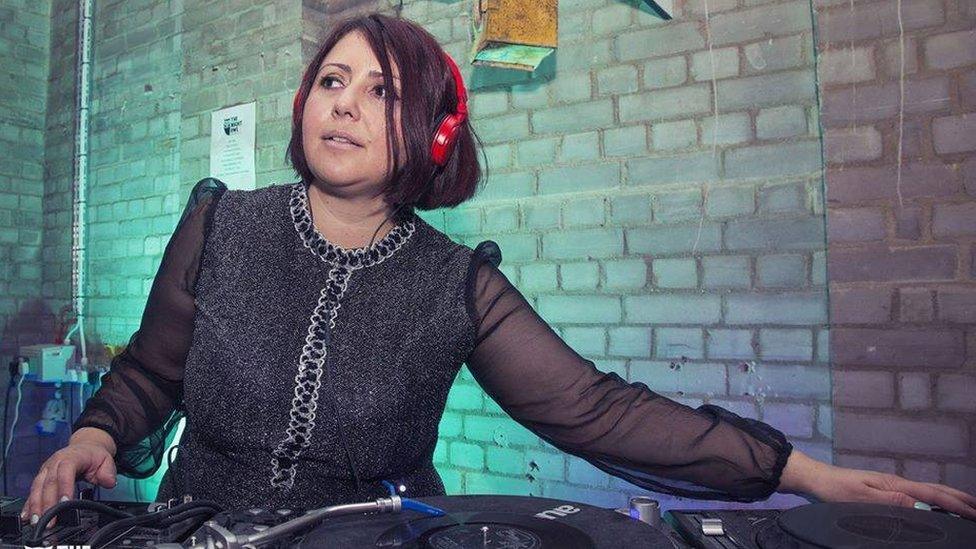
Night Owl DJ Mazzy Snape has been hosting radio shows and live streams to keep the club's customers happy
"Most people are understanding, and we do have a bit of chair dancing.
"Throughout lockdown we supported people with live-streamed DJ sets, Northern Soul championships, and the like, to keep people occupied - and people appreciated it.
"So when we reopened people were keen to support us.
"People want us to be there in a year's time when hopefully we can dance again."
The Jam House in Birmingham used to welcome more than 600 customers through its doors on a Saturday night - but now only has seating for 150.
The live music venue would also regularly host big bands on its stage - but now, with social distancing, the most musicians it can hold is five.
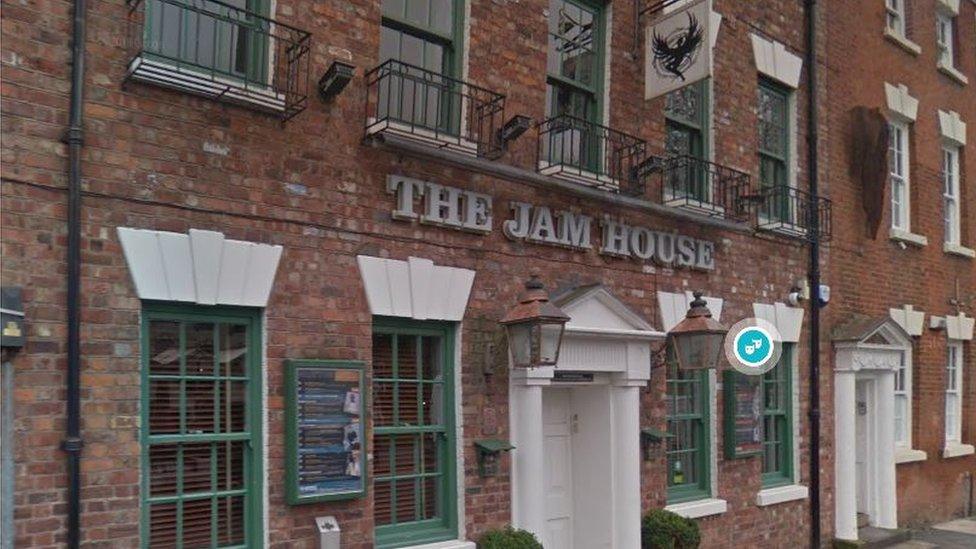
There's no room for the big bands on stage at the Jam House - it's a socially distanced five musicians now
Before the curfew, there would be about three musical sets per evening.
"But that's gone now," manager John Bunce said.
"We've only got four hours to play with so there is some live action, a DJ working as a compere and a then a catalogue of previously recorded live shots from the Jam House of the past.
"Then there is a live performance but then it's time to prepare to leave.
"The curfew has been hard. We try to be as hospitable as we can but it's hard when given rules from an outside force."
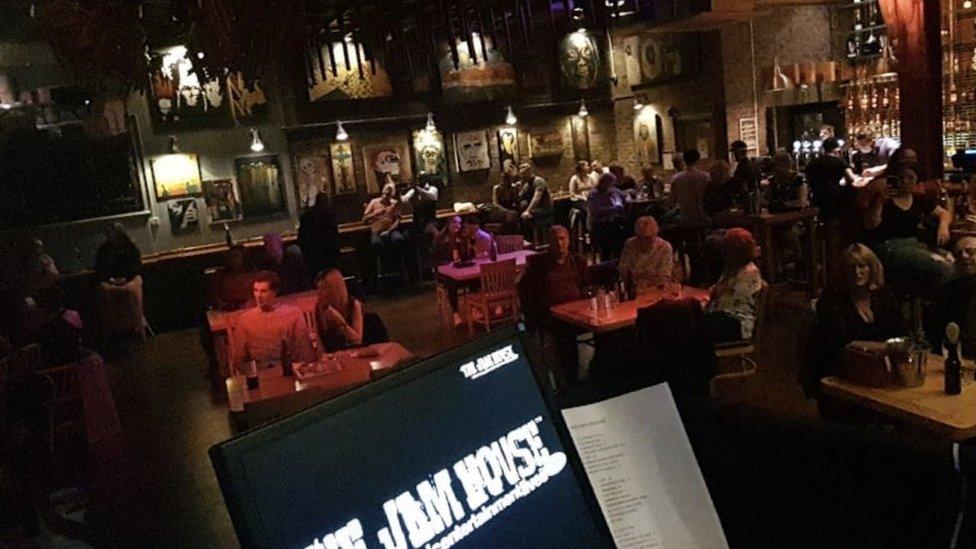
Tables replace the dancers at the Jam House - a live music venue
Like many other hospitality venues it has had to let staff go.
"During lockdown we took advantage of the furlough system," Mr Bunce said
"We had just under 50 (staff) in the roll call, unfortunately come this August we had to make a number of people redundant, staff roll about 30 now."
Despite the challenges the venue wanted to continue hosting live music and try to continue to support musicians.
"We didn't want to run as a pub and restaurant.
"It's a big venue on several floors and we didn't think we could create the intimacy or a pub or a bar."
Average takings were down to 20% when it reopened and then they suffered a further reduction to 14% when the curfew was introduced. And it could be more restrictions are on the way with pubs and clubs expected to close in some areas of England.
"We can only really open Friday and Saturday nights - whereas previously we traded five nights a week."
"We think we can hold on until past Christmas at the levels of loss we're experiencing," he added.
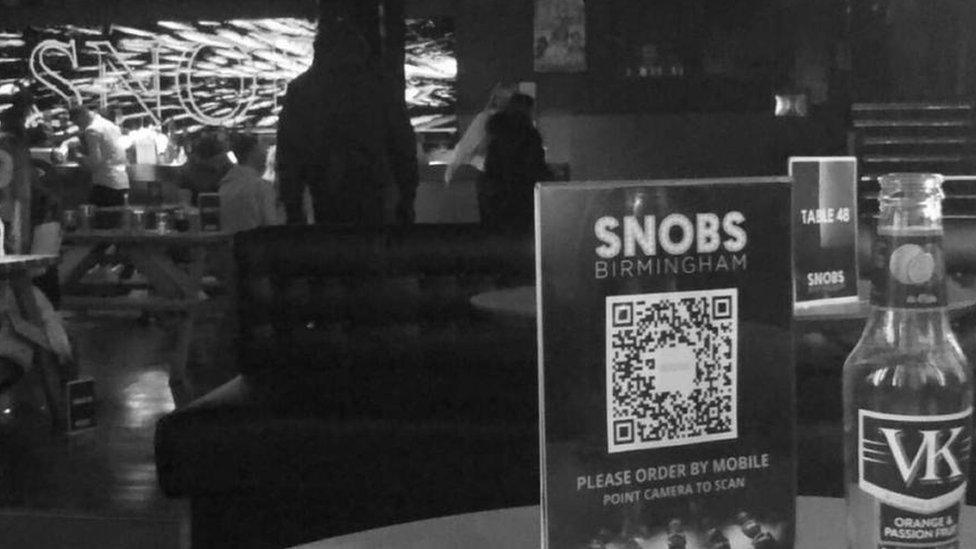
But what are the changes like for the former nightclub-goers?
Harriet Crossley, 19, from Dudley is a regular at Snobs nightclub in Birmingham.
The second-year English student at Birmingham City University said since it reopened after lockdown she regularly goes with friends about twice a week.

Snobs regular Harriet Crossley, right, attends the nightclub regularly with friends
"No dancing is allowed, you have to be completely seated and can't really stand up," she said.
"The bouncers are quite strict but also very understanding - everyone complies really well.
"It does feel strange but it's like our local so to us it's still the same Snobs.
"Everyone wants to support it and nobody wants it to close, so it's always full and there are never any spare tables.
"It always used to be about music and dancing but now with the social distancing it's more about a club atmosphere with people your age, rather than going to a pub."
- Published8 October 2020
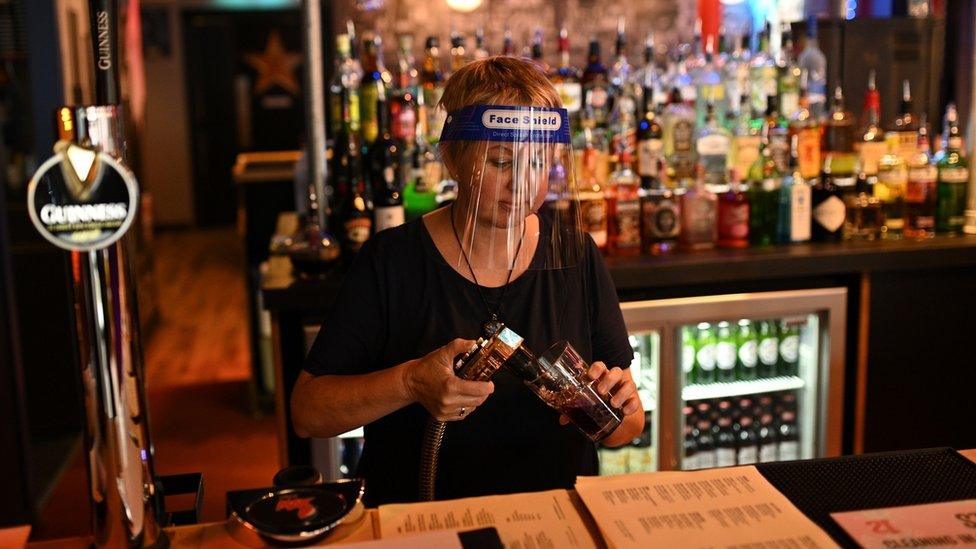
- Published25 September 2020

- Published10 September 2020
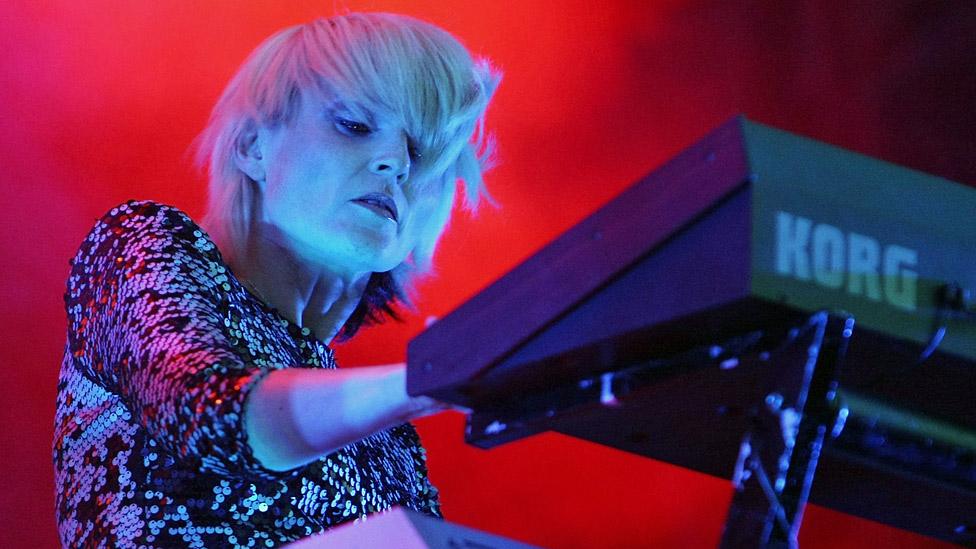
- Published12 June 2020
